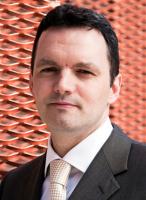The Global Sustainability Institute (GSI) is a research institute at Anglia Ruskin University (ARU).
It was established by in 2011 as part of Anglia Ruskin University’s commitment to sustainability. It is a University-wide body which spans a broad portfolio of areas and interests related to sustainability. The GSI is now over 40 people (including staff, postdoctoral researchers, doctoral candidates, knowledge transfer partnership associates and visiting fellows). It has an annual research income of over £400,000, with research projects with the World Bank, UK Department of Energy and Climate Change, Lloyds of London, UK Institute of Actuaries, Cambridgeshire County Council and Skanska as well as UK Research Council and European funding.
The GSI brings together expertise in international climate finance and resource-risk-society modelling. The GSI has led the work of the UK Government on developing policy frameworks to enable public-private partnerships on international climate finance. The GSI has expertise in systems dynamic and agent based modelling techniques and has built the Global Resource Observatory (GRO) pilot models to understand the global risks associated with resource depletion and climate change at a country level. The GSI contributes its understanding of model development and assessment as well as stakeholder engagement in model building.






